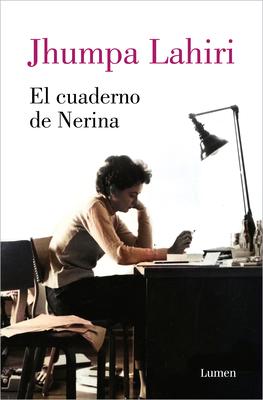
fingen ser otros autores, comentan poemas que pretenden no haber escrito o aparentan ser meros lectores. La escritora se convierte en lectora e incluso invoca la intervencin de una misteriosa erudita para que le ayude a ordenar ese ovillo de estrofas y vidas, que no son las suyas, pero que muy bien podran ser las nuestras. «Lahiri juega con las identidades como Pessoa, [...] con una geografa ms sentimental que biogrfi ca, que oscila entre los roles de madre-hija-mujer y las edades de la vida . -L'Espresso ENGLISH DESCRIPTION A one-of-a-kind book by the winner of the Pulitzer Prize and PEN/Hemingway Award, featuring a mysterious poet whose works uncannily mirror the author's own life.
Deep in a desk drawer in her house in Rome, the author finds a collection of objects left behind by the previous owners: stamps, a Greek-Italian dictionary, buttons, postcards that were never sent, a photo of three women standing before a window, and a fuchsia notebook with the name "Nerina" written on the cover. Who is this woman with no last name? Like the classical or medieval poets, or an enigmatic Renaissance artist, Nerina transcends the bounds of history and geography. Stateless, polyglot, well-educated, she fills her notebook with poems about a life spent in Rome, London, Calcutta and Boston, about her bond with the sea, her family and words, and in them, an identity begins to take shape. Nerina, whose existence we glimpse only through verse, with very few other clues, has the same relationship to Jhumpa Lahiri as the one between other poets and their alter egos, who can appear in the guise of other authors, comment on poems they claim not to have written themselves, or pass themselves off as just another reader. In this book, author becomes reader, even invoking a mysterious authority to help unravel this tangle of verses and lives that aren't hers, but which could well be ours.
fingen ser otros autores, comentan poemas que pretenden no haber escrito o aparentan ser meros lectores. La escritora se convierte en lectora e incluso invoca la intervencin de una misteriosa erudita para que le ayude a ordenar ese ovillo de estrofas y vidas, que no son las suyas, pero que muy bien podran ser las nuestras. «Lahiri juega con las identidades como Pessoa, [...] con una geografa ms sentimental que biogrfi ca, que oscila entre los roles de madre-hija-mujer y las edades de la vida . -L'Espresso ENGLISH DESCRIPTION A one-of-a-kind book by the winner of the Pulitzer Prize and PEN/Hemingway Award, featuring a mysterious poet whose works uncannily mirror the author's own life.
Deep in a desk drawer in her house in Rome, the author finds a collection of objects left behind by the previous owners: stamps, a Greek-Italian dictionary, buttons, postcards that were never sent, a photo of three women standing before a window, and a fuchsia notebook with the name "Nerina" written on the cover. Who is this woman with no last name? Like the classical or medieval poets, or an enigmatic Renaissance artist, Nerina transcends the bounds of history and geography. Stateless, polyglot, well-educated, she fills her notebook with poems about a life spent in Rome, London, Calcutta and Boston, about her bond with the sea, her family and words, and in them, an identity begins to take shape. Nerina, whose existence we glimpse only through verse, with very few other clues, has the same relationship to Jhumpa Lahiri as the one between other poets and their alter egos, who can appear in the guise of other authors, comment on poems they claim not to have written themselves, or pass themselves off as just another reader. In this book, author becomes reader, even invoking a mysterious authority to help unravel this tangle of verses and lives that aren't hers, but which could well be ours.
Paperback
$22.95